From
September 21 to 23, 2006, catechumenate directors, team members, liturgists, and catechists gathered to discuss the issues and challenges of implementing the
Rite of Christian Initiation of Adults in our diocese and to study the Rite of Acceptance and the Scrutiny Rite. (
Read about some of the strategies we discerned in this Word document.)
One primary concern that was raised from that gathering was the need for simple resources to help catechize and prepare the assembly for the rites of initiation.
So, catechumenate ministers of the diocese: we hear you!
Below is part of the unformatted text from a bulletin insert that you can download, print, and copy for FREE for use in your parishes to help you catechize about the Rite of Acceptance. I ask that you simply include the author and copyright information on any copies you make.
Get the fully-formatted ready-to-copy bulletin insert (pdf) here. Christian Initiation of Adults
Discernment
Listening to God's Voice by Diana Macalintal
© 2007, Diana Macalintal.
All rights reserved. Hearing and RespondingA big part of becoming and being Catholic is learning to hear God’s voice and responding. Our Scriptures tell us many stories of people hearing God and responding.
Abraham heard God’s voice from an angel, a “messenger” of God, asking him to sacrifice his only son, Isaac. Confused and probably afraid, Abraham responds by trusting God’s voice (Gn 22). Moses heard God’s voice coming from a surprising and unusual source—a burning bush. He responded to this unexpected encounter with the Divine by taking off his shoes and accepting God’s call to set his people free (Ex 3). The Samaritan woman at the well heard God’s voice in the midst of her everyday chores, in an ordinary conversation with a stranger. She responded to Jesus by becoming the first evangelist proclaiming the Good News to her village (Jn 4). And Mary heard God’s voice in an angel with unbelievable and perhaps terrifying news for one so young—she would bear God’s child. She responded in faith with amen, “let it be done” (Lk 1).
Perhaps Adam and Eve’s sin was not just disobeying God but not responding when he called, for when they heard his voice after eating the apple, they hid themselves (Gn 3).
For discussion: Do you remember a time when you heard God’s voice and knew it was God speaking? Where or who did it come from? What did you feel when you heard God’s message for you? How did you respond? Voices in My Head?Unlike some of the Scripture stories, however, we will probably hear God’s voice in much more ordinary ways. Most of us will never have an angel appear to us with a divine message from God. Nor will many of us encounter a burning bush or other supernatural revelation of God. More than likely, we’ll hear God the way the woman at the well did—in a simple conversation with another person while doing the simple things we do everyday—or the way Mary did—in an unexpected turn of events.
As Catholics, we believe that God is constantly trying to reveal God’s self to each person, using the ordinary things we experience in our lives to be the “messengers” for God’s word. In our family, friends, and the familiar events of our life, through the stranger and the new experience, and most especially in the poor, the outcast, and those events that shake us to the core, God is trying to say, “Here I am. Listen.”
At critical moments in our lives, God’s voice may be very strong: at the birth of a new family member or at the death of a loved one; when we fall in love, or when we break up; when tragedy happens or when we are overwhelmed by goodness; when we are deciding on a career, a vocation, a life-long partner; when we are hurt, or when we cannot forgive; when we need to choose a new way of life.
When we hear God’s voice, we might feel unsettled or out of sorts. We might feel that we need to do something, to make a change or be more resolved. Discovering who God intends us to be (our truest self), what God is asking of us at this moment in our life, and making a decision to act is called discernment.
For discussion: When was the last time something critical or significant happened in your life? What was God communicating to you at that moment?Discerning God’s CallFor Catholics, there are four honored places we listen for God’s voice: in Scripture, in our Catholic tradition and teaching, in the Church community, and in our own conscience. Those who are preparing to become Catholics—the catechumens—participate in an on-going process of discernment throughout their preparation, learning to listen for God’s voice in these four principle ways. They do this to continue growing in their new faith in Christ and to know when they are ready to take the next step toward initiation into the Church. We who are already baptized serve as models for the catechumens, teaching them by our example how to listen for God’s voice each day, especially when we need to make an important decision.
ScriptureThe Scriptures reveal who God is and how God relates with his people. The Scriptures project God’s voice most clearly when it is proclaimed in the assembly within the liturgy and connected to the real-life stories of that assembly in the homily. In the Gospel, especially, we believe that Christ is speaking directly to us, calling us again to listen and respond.
In a special way, the catechumens listen and respond to God in the Scriptures by “breaking open” the Word. They are dismissed from the Mass with a catechist to “feast” on the Scriptures and homily they just heard—to chew on them, in a sense—and to discover together what God is calling them to do at that moment in their faith journey.
Church Tradition and TeachingYou can’t find answers in the Scriptures to every one of life’s problems. But you can find Jesus’ promise that the Holy Spirit will remain with us always, guiding us, instructing us in everything (Jn 14:26). That Spirit has led our Church through the ages, inspiring saints and holy women and men to hear and respond to God’s voice in their own time and situation. Church tradition is the collective wisdom and presence of that Spirit, showing us how our ancestors interpreted not only Scripture but also the signs of the times through which God was acting.
Church CommunityThe apostles didn’t receive the Spirit as individuals but as a community. We believe that in the faithful, there is a “sense” of what God is calling us to be. When two or three are gathered, God is there. And so learning to hear God’s voice is a group exercise. Together we listen for God with those we trust and who know us best—our companions, literally, those we share bread with. Our companions help us to hear and see the things we may be missing. They do this not just by what they say but also by how they live. Catechumens are given special companions called sponsors to help them discern God’s voice throughout their journey to initiation.
For discussion: Who are your companions? Who is looking to you be their companion in faith? How can your own actions model for the catechumens a life of listening and responding to God?Our ConscienceFor those with faith, God’s word is not far from them—“it is something very near to you, already in your mouths and in your hearts” (Dt 30:14). God’s Spirit is in us, guiding our conscience into knowing the path God wants us to take. If after consulting all the other areas of discernment, we still feel uneasy, it may be because our conscience, God’s Spirit in us, knows it is not satisfied. But if after true discernment, we feel at peace, even with a hard decision, we can trust that we have listened and responded well to God’s voice.
A Process for DiscernmentWhen faced with a difficult decision or turning-point in your life, or you just need to know better where God is leading you at this time, try this process.
Pray daily: Praying is less about saying things to God and more about being still to listen to God. Find a quiet place, and just be still and open to what God is trying to reveal to you. Making the sign of the cross, reading the Bible, or praying the Lord’s Prayer may help you focus on being attentive to God.
Participate at Mass: Keep your eyes, ears, mouth, and hands open to encountering God when your participate at Sunday Mass. Read the Sunday readings before you come to Mass. Be present to those around you, especially the stranger. Bring your concerns to prayer in the community. Reflect with others after Mass.
Look to the saints and other holy people: Read about the saints and their writings. Read Scripture stories about our ancestors in faith. Pay attention to people in your church or in your life whom you admire because of their life of faith. Share your faith with them, and let them be your companion and sounding board.
Return to prayer: Be still again in prayer, and listen to the small voice within you. Imagine making your decision, and notice your feelings. Journal about them if it helps. Which decision gives you a sense of peace? Which choice feels right with who God intends you to be? When this peace comes, give thanks to God.
 On Saturday, March 31, 2007, from 9:00a to 3:00p, Saint Mary's School in Los Gatos will be having an Electronic Waste Collection Event.
On Saturday, March 31, 2007, from 9:00a to 3:00p, Saint Mary's School in Los Gatos will be having an Electronic Waste Collection Event.
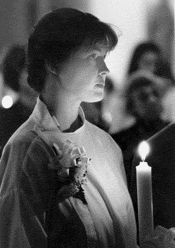
 Click here to get
Click here to get 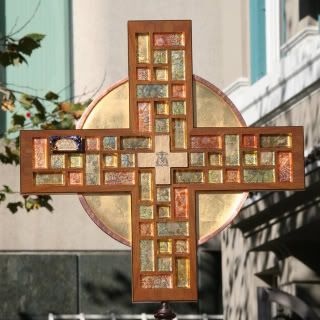
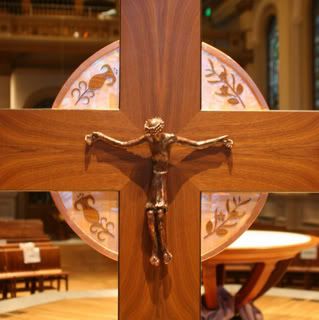
 The
The  Evaluating liturgy can sometimes devolve into a competion of varying personal tastes and preferences. But by starting with some solid liturgical principles, such as the integral role of the assembly, silence, the purpose of music, the transparency of ministers, we can begin to evaluate our liturgies using some common baseline standards.
Evaluating liturgy can sometimes devolve into a competion of varying personal tastes and preferences. But by starting with some solid liturgical principles, such as the integral role of the assembly, silence, the purpose of music, the transparency of ministers, we can begin to evaluate our liturgies using some common baseline standards. In preparation for the Chrism Mass on Tuesday, March 27, 2007, 7:30p at the Cathedral Basilica of Saint Joseph, please be sure that your parish oil vessels are undamaged,
In preparation for the Chrism Mass on Tuesday, March 27, 2007, 7:30p at the Cathedral Basilica of Saint Joseph, please be sure that your parish oil vessels are undamaged,  If you need to purchase new Holy Oil Vessels, we recommend vessels from
If you need to purchase new Holy Oil Vessels, we recommend vessels from 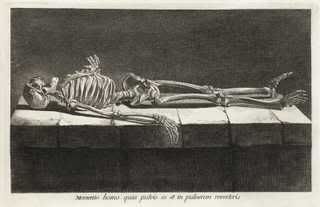


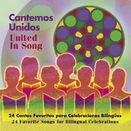



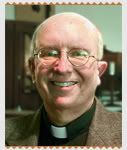 Fr. Tom Jones, CSP, was my first and best boss in the world of church ministry. When I was a freshman ending my first year of college at UCLA, he and the music director of the
Fr. Tom Jones, CSP, was my first and best boss in the world of church ministry. When I was a freshman ending my first year of college at UCLA, he and the music director of the 
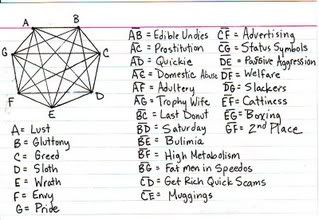
 Calling all singers! We've begun the diocese's busy season of liturgies. And for each of these, we need music ministers to assist with singing in the Diocesan Choir. Look at the dates below and see if you would be able to share your skills.
Calling all singers! We've begun the diocese's busy season of liturgies. And for each of these, we need music ministers to assist with singing in the Diocesan Choir. Look at the dates below and see if you would be able to share your skills.